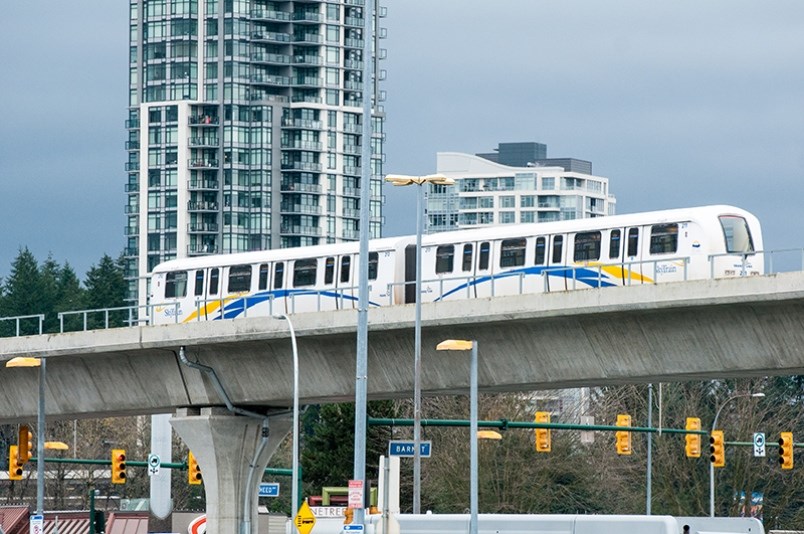While commuters may be increasingly turning to more sustainable modes of transportation, the car is still king in Coquitlam.
Data in the city’s Strategic Transportation Plan Report Card shows residents travel an average of 21.7 vehicle kilometres per day, an increase since 2011 and higher than the 18.1 v/km Metro Vancouver average. Coquitlam has also seen a 16% rise in vehicle ownership between 2013 and ’17, according to the report.
“We are losing ground,” Coun. Craig Hodge said during a committee meeting on Monday. “We are adding more cars faster than we are adding people.”
He noted that the data is surprising given the fact Coquitlam has made gains in public transit infrastructure with the addition of the Evergreen Extension to the Millennium Line.
“I would have expected that number to go the other way,” he said.
But Coquitlam’s engineering staff noted that most of the data included in the report comes from 2017, when Evergreen ridership was just ramping up.
Dragana Mitic, Coquitlam’s manager of transportation, said more recent Compass Card data shows a significant increase in transit ridership in the city between 2016 and ’18. TransLink’s 2018 performance review, for example, showed a 34% increase in overall transit boardings in the municipality.
While Mitic acknowledged vehicle usage and ownership has increased, she said the city is still on track to exceed its goal of shifting 30% of all trips to a sustainable modes, such as walking, cycling or transit.
“We still have more work ahead of us,” she said. “Continued investment into our transportation infrastructure is necessary to continue the observed trend and make further shifts toward sustainable travel modes.”
There is more positive news in the report, Mitic added.
Despite significant growth, Coquitlam has kept its greenhouse gas emissions (GHG) increase to 3% between 2007 and ’12, lower than the 5% increase seen across the region. Emissions have also decreased per capita in the city by 7% compared to the 3% Metro Vancouver average.
Some councillors expressed concern about the timeliness of the data they are receiving from the province around GHG emissions.
According to the report card, numbers are available for 2007 and 2012. And while data was collected in 2016, it has yet to be made available to the municipalities.
“A 36-month gap between a measurement and a report simply isn’t acceptable,” said Coun. Dennis Marsden.
Council agreed to send a letter to the province asking for more timely reports on greenhouse gas emissions in order to gauge how the city is meeting its targets.



